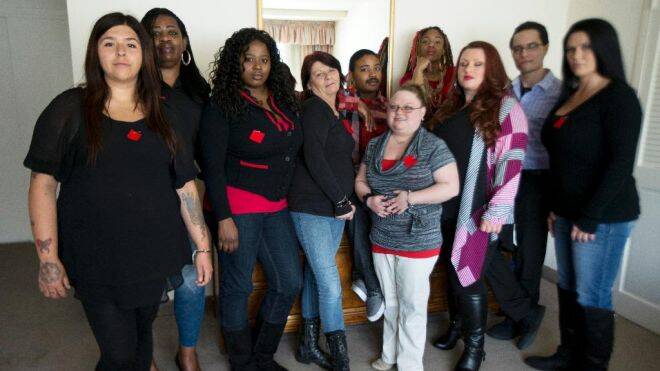The concept of jubilee that the book of Leviticus describes is a pretty worldly one—liberty for slaves and prisoners, forgiveness of debts, land reform. When the concept reappeared in Christianity under Pope Boniface VIII, in the year 1300, it took a more spiritual form. Papal jubilees have generally involved pilgrimages and plenary indulgences for individual sins, rather than direct adjustments to power relations. It is still a few more days until details emerge about Pope Francis’ planned Jubilee of Mercy beginning this December—the bull of indiction is expected in a few days—but given this pope’s outspokenness on economic and social injustice, perhaps he will bring back a bit of Leviticus.
There is a glimpse of jubilee happening right now in an unlikely place: the U.S. Department of Education. There, officials are considering the case of more than 100 former students of an imploding for-profit corporation, Corinthian Colleges, who seek to have their student-loan debts forgiven on the basis that Corinthian pushed them into the loans under fraudulent terms. In the meantime, they’ve stopped making payments in protest. Their case is a particularly egregious example of what has become widespread: Profiteering companies using vulnerable students to extract federal loan dollars while providing education of questionable value. And, despite the lobbying muscle of for-profit colleges like Corinthian, The Washington Post reports that these students’ revolt “might just work.”
Mallory Heiney, one of the Corinthian debt resisters, studied nursing so she could do missionary work in Africa, but the $24,000 she owed upon graduation—under terms she was misled about—made this impossible. "Now, because of this debt, I am unable to return to the field," Heiney, 21, says. "However, I believe wholeheartedly the Lord is faithful to His people."
The Corinthian debt strikers are part of the Debt Collective, a group that emerged out of Occupy Wall Street, using creative strategies to organize resistance against the quiet acquiescence that tends to prevail around predatory lending. In 2012, the group called a “Rolling Jubilee”; it raised more than $500,000 in donations and began using the money to discreetly buy debt on secondary markets—for as little as pennies on the dollar, just like collection agencies do—and abolish it. (At the time I wrote about their “jubilee” language as one of several ways that Occupy “got religion.”) Now, Debt Collective members are reaching out to communities of faith, asking for support, in the spirit of jubilee, as they prepare for further meetings with the Department of Education.
Student debt is only one of many opportunities for a jubilee that is both material and spiritual. The Jubilee USA Network organizes for relief wherever debt is used to win profits for the rich at the expense of the poor, from storm-ravaged Vanuatu to Greece. Many of us have seen all to well in our own lives the damage that crushing debt can cause. Together with jubilee, we are long overdue for restoring the church's capacity to notice in its midst the sin of usury—the use of lending to exploit the poor.
Whatever terms Pope Francis announces for the Jubilee of Mercy, Mary Ann Walsh, R.S.M., is right to remind us in America that the jubilee “must start at home.” It starts with how we manifest the jubilee spirit around us. A jubilee that is truly Christian, and truly incarnational, should include both the worldliness of Leviticus and the spirituality of pilgrimage and forgiveness. We can begin by noticing the usury in our midst, and refusing to tolerate it. We can also re-center our lives around the kinds of debts—to family, to community, to tradition—that are actually worth holding.








